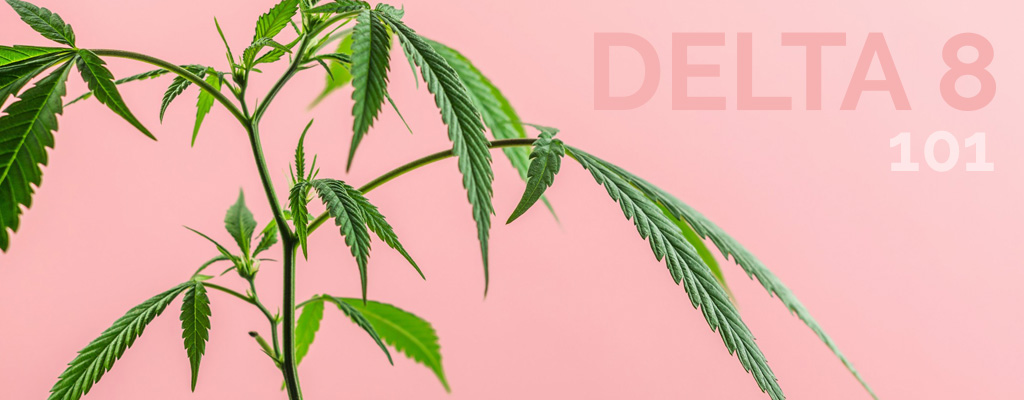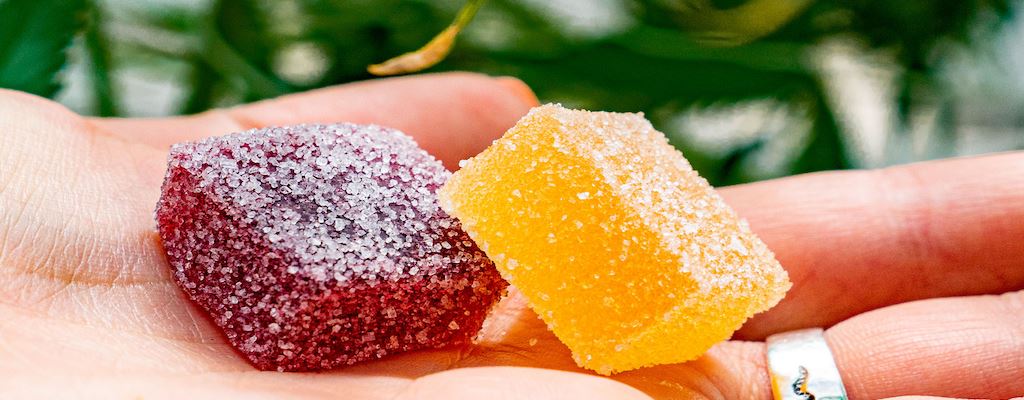Delta-8-tetrahydrocannabinol, or delta-8 THC, is one of the more than 115 different cannabinoids present in cannabis plants. It has become widely popular because of its similarities to delta-9 THC. Just like delta-9 THC, it is a psychoactive cannabinoid, but it is not as potent as delta-9 THC.
While delta-9 THC usually results in an intoxicating “high,” delta-8 THC causes a much milder “high.” But it still causes effects similar to delta-9 THC, such as pain relief, anxiety relief, sedation, euphoria, increased appetite, reduced nausea, and relaxation.
Because delta-8 THC is not as potent as delta-9 THC, it does not lead to side effects like anxiety and paranoia even at high doses. So, cannabis users who crave milder and smoother “highs” are now switching to delta-8 THC, one of the most popular cannabinoids in the cannabis industry.
But how is delta-8 extracted?
To answer this question, we will look at the entire extraction process of extracting this cannabinoid from the plant until the final product. Unlike other cannabinoids, the extraction process for Delta 8 is slightly different.
How is Delta-8 THC Made?
Delta-8 THC is a natural cannabinoid; therefore, it is found naturally in all cannabis varieties, including hemp. However, it is in very small quantities in the hemp plant and has a concentration of less than 1%. Extracting delta-8 THC directly from hemp is unprofitable; therefore, it is most commonly produced in the laboratory by converting delta-9 THC or hemp-derived CBD.
Because cannabinoids have similar chemical structures, it is easy to convert one to another. Delta-8 THC is an isomer of CBD, meaning they have the same number of atoms but different structural arrangements. Therefore, by rearranging CBD, you can get Delta-8, known as the isomerization process.
Extracting CBD from Hemp
CBD is present in large amounts in federally legal hemp material. To produce delta-8 THC, the first step is converting CBD from this material. The material is usually hemp flowers or the entire hemp plant. Although there are several methods of extracting CBD, decarboxylation is the first step.
Hemp decarboxylation, or decarbing, is heating the hemp to specific temperatures. The heat converts CBDa to CBD, which is important to enhance the potency of the extracted material.
After decarbing, any of the following processes can be used to extract CBD from the dried cannabis plant.
Common Extraction Methods for CBD
Many methods can be used to extract CBD, but oil extraction, solvent-based extraction, and solventless extraction are the most popular ones.
Oil extraction: This is the oldest method and involves using an oil base such as olive oil. This is then heated gently to remove the CBD material.
Solvent-based extraction: This method uses a solvent like butane, ethanol, or propane, which breaks down and extracts the CBD material. However, they leave toxic residue in the CBD extract, which must be removed.
Solventless extraction: Methods like high-performance liquid chromatography or supercritical CO2 extraction do not use any solvent. These methods are used by brands that produce premium, high-quality delta-8 THC and CBD products. The CBD extracts are usually cleaner because there is no residue left behind.
After extracting the CBD material from hemp, it is refined carefully by distillation or winterization to get CBD isolate. CBD isolate is 99% pure and is the most common material for manufacturing delta-8 THC products.
Conversion of CBD to Delta-8 THC
As soon as the CBD molecule is ready, it is converted to delta-8 THC using the isomerization process. These are the steps involved in this process:
Step 1: Dissolve the CBD isolate in a solvent
Several solvents can be used to produce delta-8 THC. These solvents help to convert the solid CBD isolate into liquid so that a reaction can occur. To convert to delta-8 THC, non-polar organic solvents like heptane and toluene are used.
Step 2: Add acid to the solvent mixture and stir
Add acid into the solvent mixture and maintain a temperature of 100 degrees Celsius while stirring continuously for up to 18 hours. A stirrer hot plate is required, and popular acids include hydrochloric acids, alumina acid-washed, and p-toluene sulfonic acid.
Step 3: Test different solvent-acid combinations
Different solvent-acid combinations can be used to convert CBD to delta-8 THC. Each combination yields different results and will require different time durations between 1 and 18 hours. The combinations also have different byproducts and residues.
Step 4: Neutralize the acid
Immediately, the reaction is complete, and the upper phase separates, then the acid in the solution is neutralized. This process requires multiple washes with sodium bicarbonate, distilled water, and brine water.
Step 5: Test the final product
It is important to test at every step of the conversion process because unwanted byproducts can be formed at any stage. Frequent testing will help to identify and remove the byproducts as soon as possible.
Multiple tests should also be carried out on the final product to confirm purity. Third-party lab tests ensure a manufacturer’s legitimacy and the product label’s accuracy.
Does Delta-8 THC Extract Contain Delta-9 THC?
Generally, delta-8 THC is produced from 99% pure CBD isolates and will not contain delta-9 THC. But in a full-spectrum product, there may be trace amounts of delta-9 THC. These amounts are very small and are not enough to alter the effects of delta-8 products when consumed.
Manufacturing of Delta-8 THC Products
The delta-8 THC extract can be consumed like that or mixed with cannabinoids, terpenes, carrier oils, or flavor additives to form several products. The products include:
- Delta-8 THC-infused hemp flowers: hemp flowers sprayed with pure delta-8 THC extracts.
- Delta-8 THC tinctures: delta-8 THC is diffused in carrier oils with flavor additives and droppers.
- Delta-8 THC edibles: foods infused with delta-8 THC, such as gummies, pastries, candies, brownies, cookies, drinks, etc.
- Delta-8 THC softgels: a combination of delta-8 THC and carrier oils in a soft-shelled capsule.
- Delta-8 THC vape cartridges: vape cartridges with pure delta-8 THC extracts.
- Delta-8 THC dabs: smokable delta-8 THC concentrates.
Where to find the best Delta 8 Products?
Delta 8 THC is a great way to treat everyday aches and pains and can be used for several other medical reasons and will only continue to skyrocket. Like most shopping, knowing who you’re buying from and how reputable they are is essential. You don’t want to take shortcuts, especially with something you plan to ingest or put in your body.
When it comes to reputable and reliable brands that sell delta 9 products, there is no better place than Delta 8 resellers. For all of your cannabis needs, Delta 8 resellers have hundreds of respectable brand names and products that are ideal for you. Choose from hundreds of products to help with anxiety, including pens, cartridges, flowers, CBD products, and more. You can also sign up for a wholesale account to place online orders.
Find everything you need at the most affordable prices and if you’re still skeptical, talk to a customer service representative that will answer your questions. Purchase a good Delta 8 edible or Delta 8 gummies, and you will find relief in no time.
How is Delta 8 extracted – Final Thoughts
Since there are various methods of extracting delta-8 THC, consumers must ensure that they use only high-quality products. Reputable brands always test their ingredients and products using third-party labs to ensure potency and quality. So, always look for these test results, as they also show the number of cannabinoids in the product and the presence of any byproducts or residue.



